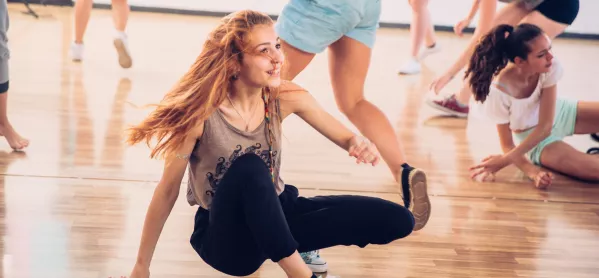We all know that there is an increasing emphasis on the importance of retrieval practice in the classroom, with the strategy having been proved to have a huge impact on young people’s learning.
It’s all about deliberate recall of previously learned material, and, as a technique, it fits into writing-based subjects quite neatly. But what about practical subjects?
How do drama teachers like me, and those in other practical lessons, create opportunities for retrieval practice?
It is possible. We just need to get a bit creative in providing moments for retrieval practice to take place and finding ways to demonstrate that it has done so.
How teachers can introduce retrieval practice in practical subjects
Here are my top tips for putting retrieval practice into your practical classroom.
Revisit keywords
Display a selection of key words that are to be taught across the curriculum. Organise them termly, linking them closely to your schemes of work. Once the words have been introduced, you can then start to use low-stake quizzes to revisit them.
After term 1, you should now have a bank of key words that can be revised and used for retrieval exercises. This can then be added to the new keywords in term 2 and so on.
Use demonstrations
In practical subjects, we need students to be able to demonstrate to us that they can use the knowledge they have gained. Rather than getting students to write down how they would complete the task, allow them to show you.
Be specific about the skill you want to see in the demonstration, so students are aware that it is a retrieval exercise. You can then get them to vocalise what they have done in their demonstration, providing evidence that the retrieval has taken place.
Refer back to previous problems
For students to retrieve information, it is important that they remember when they might have solved this issue before. When approaching a new challenge, ask students which previously completed tasks most closely match the new assignment.
Ask them to list or discuss ways in which they had successfully solved/approached this problem previously. They can then begin the new task with the retrieval of information from their own experiences.
Pre-empt feedback
Before an assessment, ask students to show that they can retrieve knowledge of previous feedback. Ask them to list or suggest improvements that you often feed back to them.
Students can then use rehearsal/practical time to avoid these frequent pitfalls and demonstrate their retrieved knowledge of what is needed to succeed.
Explore perfection
Devise a small-scale task and ask the students to “create perfection”. What would perfection look like? Ask them to practically show you what it would look like and then discuss the steps taken to get to perfection. The students are here retrieving knowledge of how you expect their work to look before moving on to the larger task.
Rhianne Kent is a secondary school drama teacher in North Yorkshire
